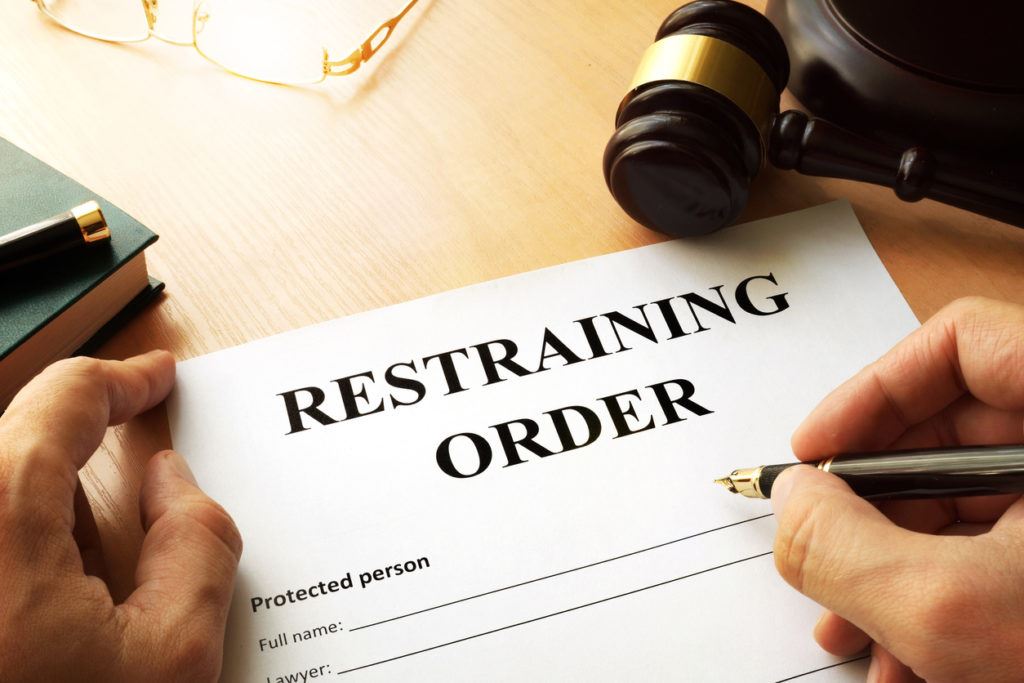Maryland Protective Orders

A protective order, also known as a restraining order, is a legal document issued by a court that prohibits an individual from contacting or approaching another person.
Protective orders are often requested in cases of domestic violence, stalking, harassment, and other forms of abuse. In Maryland, several types of protective orders can be issued, including temporary, final, and emergency protective orders.
Obtaining a Protective Order in Maryland
The process for requesting a protective order in Maryland begins by filing a petition with the court. The petition must include information about the person requesting the protective order (called the “petitioner”) and the person the order is being requested against (called the “respondent”). The petitioner must also provide details about the incidents of abuse or harassment that have occurred, including any physical harm, threats, or other forms of intimidation.
Once the petition is filed, the court will schedule a hearing to determine whether a protective order is necessary. At the hearing, both the petitioner and the respondent have the opportunity to present evidence and testify. If the court finds that there is sufficient evidence of abuse or harassment, it may issue a temporary protective order. This order is typically in effect for a short period of time, usually until a final hearing can be scheduled.
At the final hearing, the court will consider all of the evidence and testimony presented by both the petitioner and the respondent. If the court finds a protective order necessary, it will issue a final protective order. This order may be in effect for up to one year and can be extended if necessary. The final protective order may include provisions such as prohibiting the respondent from contacting or approaching the petitioner, requiring the respondent to stay a certain distance away from the petitioner’s home or place of work, and prohibiting the respondent from owning or possessing firearms.
Types of Protective Orders In Maryland
Emergency/Interim Protective Orders
Emergency protective orders are available in Maryland for cases where there is an imminent danger of abuse or harm. These orders can be issued without the respondent being present and are typically in effect for a short period of time until a hearing can be scheduled. Once an Interim Protective Order is granted, a temporary protective hearing will be held to further elucidate the issue. If the accused abuser fails to appear in court, the session will continue without them.
Temporary Protective Orders
Temporary protective orders are then put into place when it is reasonable that abuse has occurred; the rights granted to the protectee are similar to an emergency protective order but with one key difference. Temporary protective orders bestow the protectee with temporary custody of minor children. This type of order will only last seven days or until a final protective order hearing is held.
Final Protective Orders
Final protective orders are the last step in the protective order process. Here the court will decide if abuse/ harm has occurred and what length of a protective order is appropriate for the case. Usually, the decided length of the protective order is between 12 and 18 months.
Am I Eligible For A Protective Order?
In order for a protective order to be issued, abuse must be present in the relationship. In general, abuse refers to behavior that is intended to control, intimidate, manipulate, or harm another person.
This can include physical abuse, sexual abuse, emotional abuse, and financial abuse. Examples of behavior that may be considered abusive and potentially warrant a protective order include acts that cause serious bodily harm, such as kicking, punching, choking, shooting, stabbing, or biting; acts that place a person in fear of imminent serious bodily harm, including threats of harm; assault; rape or sexual assault; false imprisonment; mental injury to a minor child; stalking; and revenge porn. If you have suffered from any of these items listed, most likely, you are eligible for a protective order.
Conclusion
Protective orders are an important tool for addressing and preventing domestic violence, stalking, harassment, and other forms of abuse. They can provide a sense of safety and security for the victim and can help to hold the abuser accountable for their actions. It is important for victims of abuse to understand their options for seeking a protective order and to know that help and support are available.
If you are a victim of abuse or harassment in Maryland and are considering requesting a protective order, there are several resources available to help you. The Maryland Department of Human Services has a statewide network of domestic violence programs that can provide assistance with the process of obtaining a protective order, as well as other support services such as counseling and housing assistance.
You can also contact your local county courthouse or the Maryland Coalition Against Against to End Domestic Violence for more information and assistance. It is important to remember that you have the right to live free from fear and abuse and that there are resources available to help you.
The post Maryland Protective Orders appeared first on Albers and Associates.